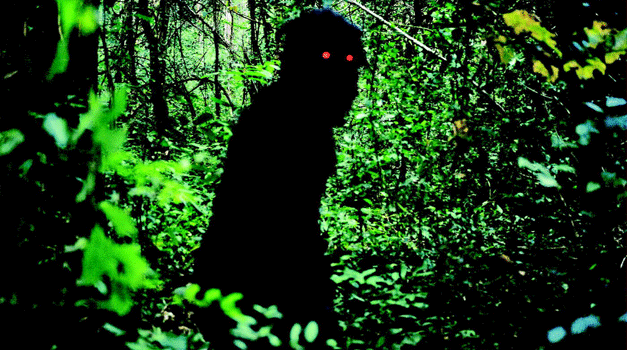Uncle Boonmee Who Can Recall His Past Lives is one of the coolest titles to come in a long time. This critically acclaimed entry from the often overlooked Thailand cinema scene is the latest from up and coming auteur Apichatpong Weerasethakul who won the Palme D’Or aka the highest honor earlier this year at the Cannes International Film Festvial. It is film filled with mystery and beauty, touching on a myriad of themes ranging from reincarnation to animals entwined with spiritual mythology among others. However despite it’s ambitious scope in terms of thematic expression, Uncle Boonmee can often times feel painfully slow and extremely random with very little explanation offered besides your own interpretation filling in the gaps.
Set in the lush tropical jungle of Isan in Thailand’s northeast, in particular the village Nabua just by the border to Laos, Uncle Boonmee is the final installment in an multi-platform art project called Primitive that Weerasethakul had been working on throughout 2009. The film just like the art project deals with themes of memories, transformation and extinction, in particular old methods of filmmaking, by examining a day in the life of the enigmatic Uncle Boonmee (Thanapat Saisaymar) who is suffering from acute kidney failure. He is surrounded by loved ones as he senses that the end for him might be coming soon. In one of the coolest shots of the whole film, the ghost of Boonmee’s deceased wife Huay (Natthakarn Aphaiwonk) magically appears before them and starts talking about their past lives.
This is where the magical mysticism of Weerasethakul’s cinematic style begins to manifest as more spritual visitiors come to Boonmee, the most memorable being his son in the form of monkey hybrid human with piercing red eyes. As these odd conversations continue, with the characters taking no apparent regard for the nature of these encounters, it becomes hard for the viewers to connect with everything that is being thrown at the screen. The visual style of the film changes throughout with cinematic styles that include, by the words of the director, “old cinema with stiff acting and classical staging”, “documentary style”, “costume drama” and “the kind of film when you see long takes of animals and people driving”. These different styles mark previous lives of Boonmee who is revisiting them before he ultimately meets his death in this world.
As you can tell from the description and title, Uncle Boonmee Who Can Recall His Past Lives is a metaphysical film that is designed to hypnotize viewers into a meditative and reflective state about life and death. The sound design and carefully crafted visual style is purposefully done in a way that is entrancing but at times distancing. While Weerasethakul’s has created a world of fantasy around the the world he lives in, he has forgotten to give the characters that inhabit it much emotional weight to lift the stakes of their emotional and metaphysical conflicts. To make matters more confusing is the fact that Weerasethakul’s is known for playing with the element of time throughout his films, making the ending of this film somewhat bewildering. So despite the multiple layers of dense philosophy and mythology this film wants you to think about, Uncle Boonmee ultimately comes off as a pointless daydream about life and death in the middle of Thailand.
7 out of 10
What did you think of Uncle Boonmee Who Can Recall His Past Lives?



